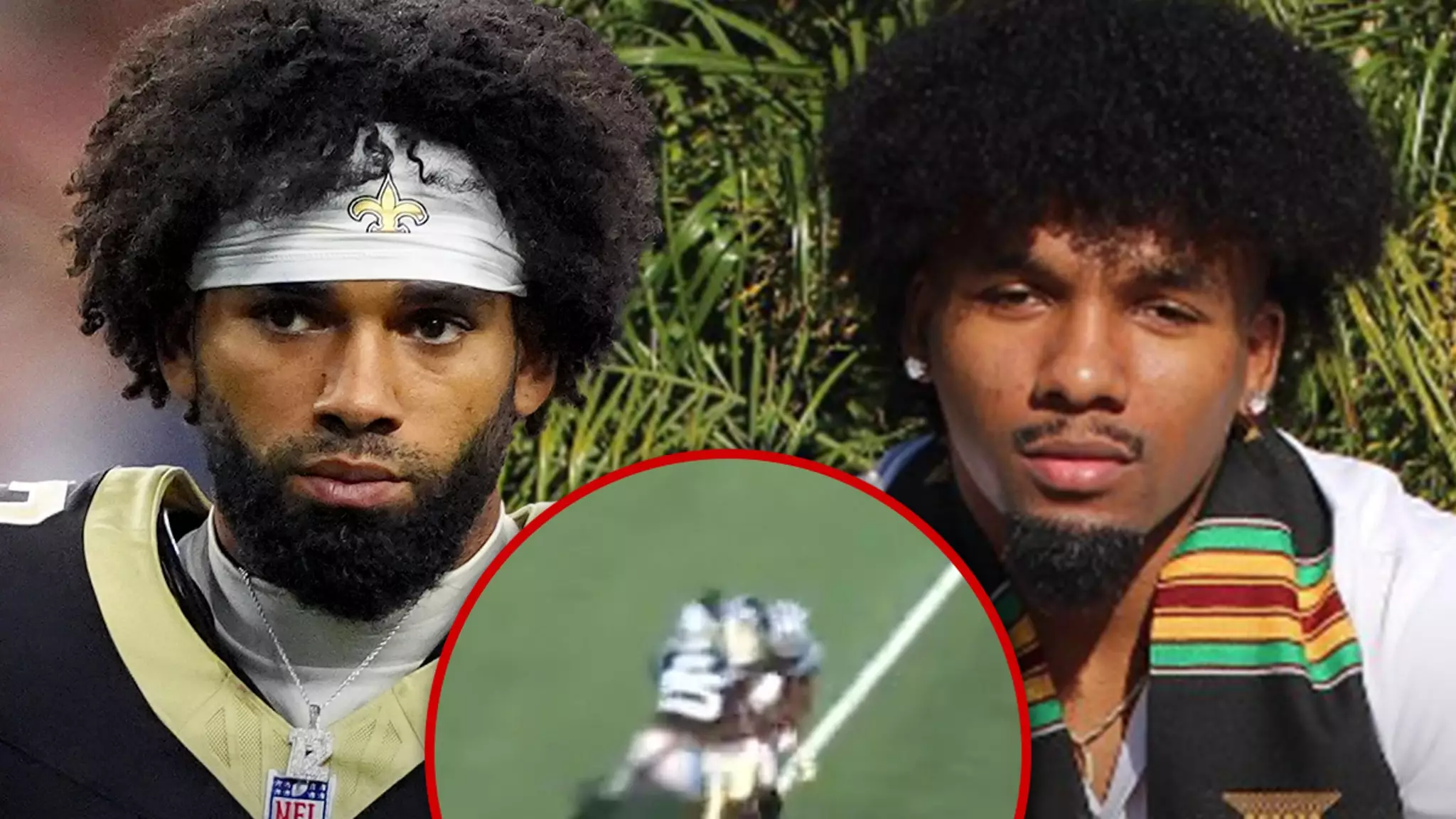The world of professional football is filled with high-speed collisions and intense physicality, but when injuries occur, they highlight serious concerns regarding player safety. Recently, NFL wide receiver Chris Olave of the New Orleans Saints experienced yet another head injury during a tightly contested match against the Carolina Panthers. This incident not only raises questions about Olave’s future in the sport but also ignites discussions about the mental and physical toll that such injuries can impose on players.
During the first quarter, the Saints found themselves in a precarious situation when quarterback Derek Carr launched a pass toward Olave. The young star made a valiant effort to catch the ball but was met with a brutal hit from safety Xavier Woods, resulting in an unnecessary roughness penalty for Woods. The nature of the hit was alarming enough to warrant immediate medical attention, leading to Olave being stretchered off the field and transported to a nearby hospital. Fortunately, he was later released and cleared to travel with his team, but the incident marked a frightening chapter in this season’s course.
The implications of this hit extend beyond the field and into Olave’s family life. His brother, Josh Olave, voiced his concerns on social media, emphatically stating that playing in New Orleans may not be worth the risk for Chris. The candidness of his remarks reflects the growing anxiety among family members of athletes tackling the invincible nature of the sport. Josh’s comments resonate with many who wonder about the long-term consequences of repeated head injuries, particularly in a league all too familiar with the ramifications of concussions.
Moreover, the reaction wasn’t limited to family alone. Frustration emanated from former Saints players too, with Michael Thomas criticizing Carr’s decision-making. His remarks, calling for Carr’s exit from the team, underscore the complexities of team dynamics and the direct impact injuries have on players’ careers and lives. The fallout from injuries such as Olave’s can often create rifts not just between players but also within the broader team environment.
Olave’s situation is a microcosm of the broader issue surrounding player safety in the NFL. As the league continues to grapple with the consequences of concussions, debates about the value of an athlete’s career versus their long-term health emerge with greater intensity. Olave has already faced multiple concussions in his relatively short career, highlighting an alarming trend that many see as overly risky. The phrase “is it worth it?” is aptly applied here, as it raises crucial questions regarding athletes’ futures in high-risk sports.
Chris Olave’s ongoing battle with head injuries serves as a somber reminder of the unique challenges faced by athletes in the NFL today. It’s a pivotal moment that not only emphasizes the need for more extensive safety protocols within the league but also ignites crucial discussions around considering an athlete’s health beyond their on-field contributions. As the community reflects on these events, it becomes increasingly clear that the well-being of players requires urgent attention and action.

Leave a Reply